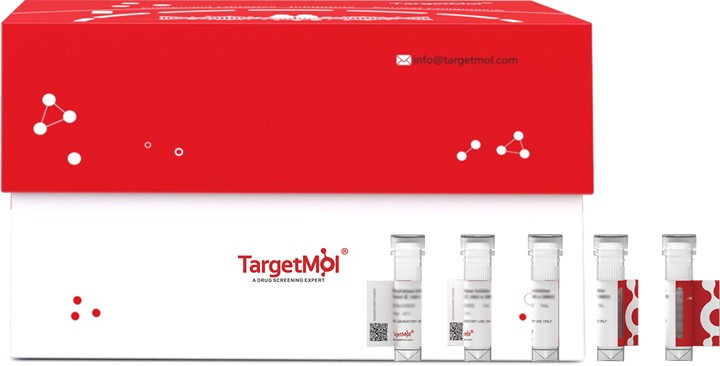购物车
 您的购物车当前为空
您的购物车当前为空
别名 集落刺激因子, M-CSF, MCSF, CSF-1, colony stimulating factor 1 (macrophage)
M-CSF/CSF1 Protein, Human, Recombinant V2 is expressed in HEK293 Cells. The accession number is P09603-1.


为众多的药物研发团队赋能,
让新药发现更简单!
M-CSF/CSF1 Protein, Human, Recombinant V2 is expressed in HEK293 Cells. The accession number is P09603-1.
| 规格 | 价格 | 库存 | 数量 |
|---|---|---|---|
| 5 μg | ¥ 638 | 6-8日内发货 | |
| 10 μg | ¥ 1,050 | 6-8日内发货 | |
| 20 μg | ¥ 1,750 | 5日内发货 | |
| 50 μg | ¥ 3,130 | 5日内发货 | |
| 100 μg | ¥ 4,920 | 5日内发货 | |
| 200 μg | ¥ 8,620 | 5日内发货 | |
| 500 μg | ¥ 17,900 | 5日内发货 | |
| 1 mg | ¥ 32,000 | 5日内发货 |
| 产品描述 | M-CSF/CSF1 Protein, Human, Recombinant V2 is expressed in HEK293 Cells. The accession number is P09603-1. |
| 生物活性 | Immobilized Human M-CSF at 0.5 μg/ml (100 μl/Well) on the plate. Dose response curve for Human M-CSF R, hFc Tag with the EC50 42.8 ng/ml determined by ELISA (QC Test). Human M-CSF, No Tag immobilized on CM5 Chip can bind Human M-CSF R, hFc Tag with an affinity constant of 2.06 nM as determined in SPR assay (Biacore T200). Measured in a cell proliferation assay using RAW264.7 cells.The ED50 for this effect is 2.5 - 7.0 ng/mL (QC Test). |
| 研究背景 | CSF-1, also known as M-CSF , is a four alpha -helical-bundle cytokine that is the primary regulator of macrophage survival, proliferation and differentiation. CSF-1 is also essential for the survival and proliferation of osteoclast progenitors.CSF-1 is cytokine that plays an essential role in the regulation of survival, proliferation and differentiation of hematopoietic precursor cells, especially mononuclear phagocytes, such as macrophages and monocytes. Promotes the release of proinflammatory chemokines, and thereby plays an important role in innate immunity and in inflammatory processes. This mutation leads to a deletion of exons 2-7 of the EGFR gene and renders the mutant receptor incapable of binding any known ligand. |
| 种属 | Human |
| 表达系统 | HEK293 Cells |
| 标签 | Tag Free |
| 蛋白编号 | P09603-1 |
| 蛋白构建 | Glu33-Asn190 |
| 蛋白纯度 | > 95% as determined by Tris-Bis PAGE; > 95% as determined by HPLC |
| 蛋白性状 | Lyophilized powder |
| 缓冲液 | Lyophilized from 0.22 μm filtered solution in PBS (pH 7.4). Normally 8% trehalose is added as protectant before lyophilization. |
| 复溶方法 | Reconstitute the lyophilized protein in sterile deionized water. The product concentration should not be less than 100 μg/mL. Before opening, centrifuge the tube to collect powder at the bottom. After adding the reconstitution buffer, avoid vortexing or pipetting for mixing. |
| 别名 | 集落刺激因子, M-CSF, MCSF, CSF-1, colony stimulating factor 1 (macrophage) |
| 内毒素 | < 1.0 EU/μg of the protein as determined by the LAL method. |
| 分子量 | 20.5 kDa (Predicted); 23-28 kDa (Due to glycosylation) |
| 运输方式 | In general, Lyophilized powders are shipping with blue ice. Solutions are shipping with dry ice. |
| 存储 | Lyophilized powders can be stably stored for over 12 months, while liquid products can be stored for 6-12 months at -80°C. For reconstituted protein solutions, the solution can be stored at -20°C to -80°C for at least 3 months. Please avoid multiple freeze-thaw cycles and store products in aliquots. |
对于不同动物的给药剂量换算,您也可以参考 更多